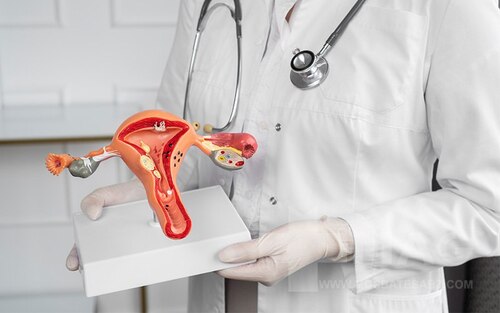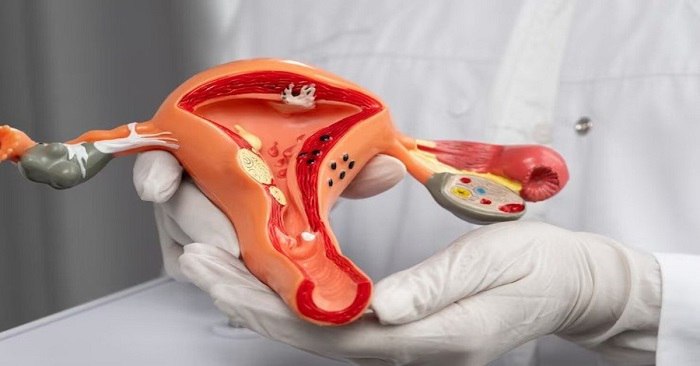Mehri Adim
The uterus is an organ inside a woman's pelvis that protects the fetus until birth. This organ can develop a variety of cancers such as endometrial cancer (the most common type of uterine cancer), sarcoma, and cervical cancer. Women are more likely to develop uterine cancer in older age (+50) and during menopause due to hormonal irregularities.
Uterine cancer is one of the most common types of cancer among women. Knowledge about the symptoms and early recognition has a great impact on treatment. Abnormal bleeding is the most common sign of uterine cancer.

The role of the uterus in the body
The uterus is the reproductive organ of a woman's body and is where the fetus develops during pregnancy. The endometrium, the inner part of the uterus, is replaced during the menstrual cycle. Two types of hormones, estrogen and progesterone, which cause the endometrium to thicken, prepare the endometrium for pregnancy. If pregnancy does not occur, the body produces less progesterone, which causes the lining of the endometrium to shed and eventually leads to bleeding or menstruation.

Symptoms of uterine cancer:
1. Bleeding during menopause
2. Bleeding between two menstrual cycles
3. Abnormal bleeding
4. Unusual discharge or watery discharge with blood
5. Painful period
6. Painful intercourse (Dyspareunia)
7. Hip, back, and leg pains
8. Nausea and heartburn
9. Extreme fatigue
10. Bloody urine
11. Unintentional weight loss
12. Loss of appetite

Causes of uterine cancer:
1. Age: Most uterine cancers occur at the age of 50 or above.
2. Food with high animal fats.
3. Genetics: Some people inherit genetic disorders that increase their cancer risk.
4. Diabetes.
5. Obesity: High levels of fat increase estrogen levels.
6- Ovarian diseases.
7. Premature period, especially before the age of 12.
8. Delayed menstruation.
9. Infertility and contraception.
10. Consuming ERT pills which are used instead of estrogen.
11. Consuming tamoxifen pills used to treat breast cancer.

Uterine cancer prevention
Most of the time, you cannot prevent uterine cancer, but you can take some steps to reduce your risk of developing it such as:
1. Control of diabetes.
2. Maintain a healthy weight.
3. Use some hormonal pills.
4. Regular physical activities.
5- Regular checkups and consultation with a specialist.
6. Visiting a specialist immediately if you see signs of cancer.
7- Familiarity with hormone therapy and its harms.

Treatment of uterine cancer:
Fortunately, uterine cancer is recognized in its early stages, and one of its most common signs is abnormal bleeding. If the cancer is recognized early and has not spread to other parts of the woman's body, the disease can be treated by removing the uterus.
Other procedures to treat uterine cancer include:
Hormone therapy, radiation therapy, chemotherapy
The 5-year survival rate from uterine cancer is 81 percent. That means 81 percent of people with this cancer survive for 5 years. When the cancer has not spread outside the uterus, this rate rises from 81 percent to 95 percent.
Uterine cancer can cause death when a woman is unaware of the infection and has spread. When cancer spreads to other parts of the body, the chance of survival drops to 17 percent.

Recognition of uterine cancer
To make a definitive diagnosis of uterine cancer, a gynecologist should be consulted and one or more confirmatory tests should be performed, such as:
Transvaginal ultrasound (TVU), Specimen collection, Hysteroscopy, aspiration biopsy, and blood test.









